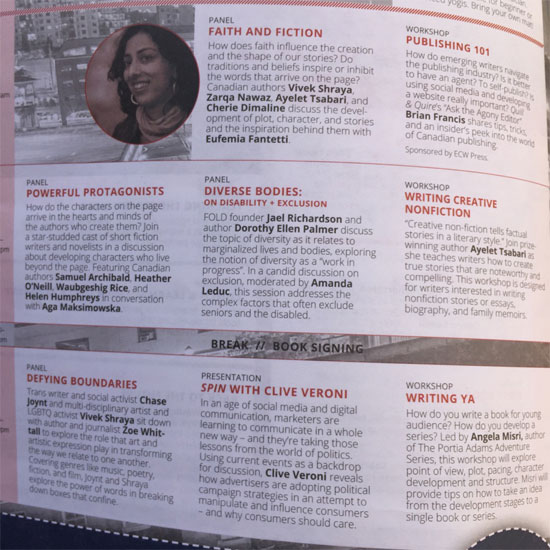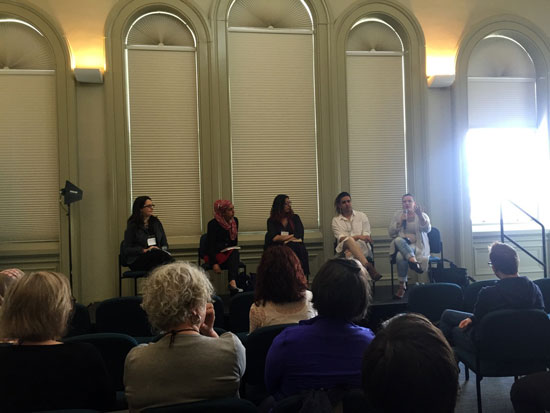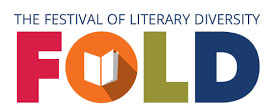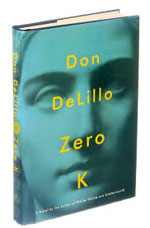I’m thrilled to welcome Margrit Talpalaru, who is going to share some terrific observations and enthusiatic praise for the recent inaugural Festival of Literary Diversity (FOLD), which took place in Brampton, Ontario over the first weekend of May, 2016.
I regret missing the fest, but am grateful for the next best thing, seeing it through Margrit’s eyes. She brings a unique combination of the erudite and the fan girl to her observations, which I think you’re really going to enjoy. First, here’s an introduction to our literary festival guide:
Margrit has been going to school for many years, in spite of repeated decisions to stop. During those many years, Margrit changed schools, changed countries, changed roles, changed diapers, and tried hard to change the world.
Mostly, Margrit’s attempts to change the world have taken a written form. Here’s a list. Lately, Margrit has been hard at work trying to change genres, too, and make her foray into fiction.
Margrit blogs at www.creativecritique.ca, and tweets @MeMargrit.
“When queer / trans / poc writers are treated as artists as opposed to just spokespersons of our identities, it’s very liberating.”
(Vivek Shraya, 7 May 2016)“So many wonderful things about @TheFOLD_ but esp. loved sharing space with diverse writers and not being forced to talk about diversity.” (Vivek Shraya, 7 May 2016)
Vivek Shraya’s tweeted contention emerged as the leitmotif running through the sessions of the inaugural Festival of Literary Diversity (FOLD), which took place May 6-8 in the remarkable venue of the Peel Art Gallery Museum and Archives (PAMA) in Brampton. Panelist after panelist echoed Shraya in remarking how crucial it is for diversity to become the assumption, rather than the subject of advocacy. In a panel about diversity in publishing, Bianca Spence said she had always been the one person of colour on staff, “but it’s not my job to teach my boss diversity.” What happens when the burden of proof and the need for validation are removed is a true celebration of diversity in literature, as the FOLD had set out as its mission in the first place. By this measure alone, the inaugural FOLD was a resounding success. But the Festival went far beyond merely fulfilling its mission statement, and the excitement around it can be easily gauged by the plethora of tweets under its hashtag #FOLD2016. (Go ahead and take a peek; I won’t tell anyone if you join the chorus.)
Isn’t this the point of diversity, that we can only achieve it collectively, rather than by token representation? That its value is intrinsic, rather than didactic or instrumental? That we, as a society should do everything to achieve it in all aspects not because it’s the concept du jour, but #becauseits2016?
The panelists’ consensus made me realize where the Festival drew so much of its energy from. The FOLD’s foundation on celebrating diversity leaves room to discuss the richness of all aspects of writing and publishing, as well as seek solutions to the disproportionate representation of people of different backgrounds, sexualities, abilities, and ages in literature and publishing. The choir needed no preaching to, so it just sang. In multiple harmonies.

The richness of topics and viewpoints carried through to the panel options: whether interested in craft, publishing, self-promotion, or genre, there was always a brilliant choice among the concurrent panels. The only problem I had was I wanted to attend them all, but since this was no fantasy, I had to pick, and not once did I feel short-changed, both because of the in-depth discussions in the panel themselves, as well as because of the cross-pollinating conversations among them during the breaks or through social media.
I was greedy in my attendance, and went to all types of panels on offer. I started out the day listening to a conversation on “Faith and Fiction,” between Vivek Shraya, Zarqa Nawaz, Ayelet Tsabari, Cherie Dimaline, moderated by Eufemia Fantetti. I am not even a little bit shy about fan-girling over the depth of the discussion, which emphasized cultural influences in the participants’ writing through the lens of faith or spirituality. Fantetti’s questions were both prodding and generous, and the panelists’ answers revealed their personal connections to their background, and their own interpretations of it in their writing.

Tsabari joked that “Growing up Jewish in Israel, we didn’t have to practice Judaism; we were just naturally good at it.” Shraya emphasized the crucial importance of representation, noting that “Queer kids had to be creative about where they found role models, so I found it in Hindu iconography,” with its more fluid gender boundaries. Nawaz spoke about the politicization of Islam, and how that creates generic expectations for her writing. Because of the portrayal of Muslims in the media—especially in the US—Nawaz suggested that writing a domestic novel about a Muslim woman can be transgressive. Dimaline shared the story of her upbringing in the Georgian Bay Métis Community, and the honour and responsibility of becoming a storyteller: “It’s the job of community’s story-keepers to provide a blanket of safety and spirituality and to uphold the duty to the seven generations.”
Next up, Aga Maksimowska moderated the panel on “Publishing (More) Diverse Canadian Stories,” which gathered publishing professionals from different branches of the industry. The panel description was
“From acquisition to acquired reading, industry professionals Anita Chong (Penguin-Random House), Barbara Howson (House of Anansi), Rachel Thompson (ROOM Magazine), Bianca Spence (OMDC), and Susan Travis (Scholastic Books) discuss ways to improve access to diverse, Canadian stories at home and beyond Canadian borders. Animated by Leonicka Valcius, this session is designed for industry professionals.”
However, the popularity (standing-room only) of the panel demonstrated that festival participants from all aspects of the book universe were hungry for answers and solutions.
We were not disappointed, as the panelists all focused on solutions, and how to proceed in the future, rather than on rehashing the obstacles. Thompson, for example, explained how the Room Editorial Collective restructured itself with an eye on including editors from different backgrounds before the “Women of Colour” issue was published. Chong echoed the notion of inclusion cautioning decision-makers to “be cognizant of who gets a voice at the table, because inclusiveness and quality are not mutually exclusive.” The unanimous conclusion pointed to the interconnection between the different aspects of the publishing industry: Spence emphasized the need for arts funding for the stories to be written in the first place; Howson challenged publishers to look for voices from around the world; Travis urged marketing and sales departments to ask book sellers why they’d think they would not sell diverse books, as well as push them not to insulate different voices in boxes, but put them on their genre shelves instead.
These are only three of the five panels I’ve attended. And I’ve only gone to one day of the Festival, so I hope this quick glimpse convinces you that my title was not a cheap pun, but genuine advice: the FOLD has only just begun, but it is sure to become a touchstone for literary and publishing conferences, so I know I’ll get my day passes as soon as they appear next year, and I hope you will, too.


